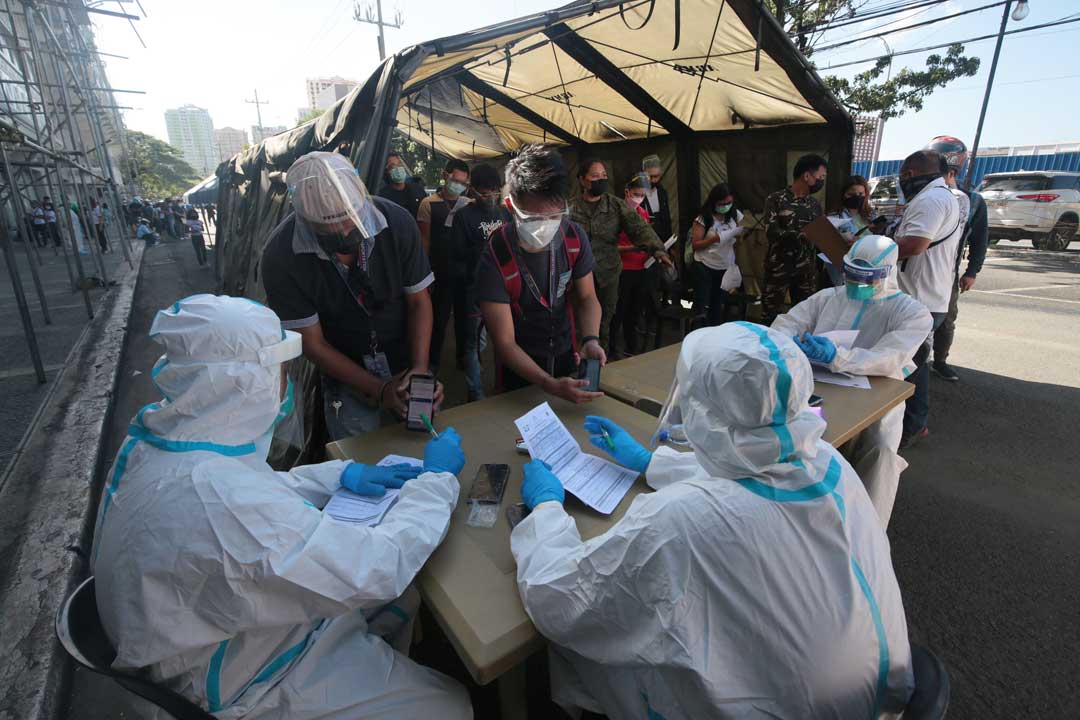Economy to lose P3 billion each week NCR Plus is under Alert Level 3

By Jenina P. Ibañez, Senior Reporter
The economy will lose P3 billion a week in productivity contributions due to the shift to the more restrictive Alert Level 3 in Metro Manila and nearby regions, government economic managers said on Friday.
“We estimate that the shift from Alert level 2 to Alert Level 3 for NCR plus, which includes Metro Manila, Bulacan, Cavite, Laguna, and Rizal, will result in a Gross Value Added loss of about P3.0 billion per week,” the Development Budget Coordination Committee (DBCC) said in a joint statement.
The five areas are under the stricter alert level 3 up to Jan. 15.
The DBCC said it is monitoring the impact of the surge in coronavirus disease 2019 (COVID-19) cases, especially in the capital region and nearby provinces.
“While this may delay our goal of shifting to Alert level 1, we believe that this is a temporary setback and is a necessary adjustment in view of the new COVID variant,” economic managers said.
The daily COVID-19 tally went up to 21,819 cases on Monday for a total active case count of 77,369. The Philippines recorded a total of 43 Omicron variant cases so far.
The DBCC said the country is in a better position to manage a spike in cases, given the vaccine rollout and increased hospital capacity.
“We now resort to granular lockdowns; and, from all indications, the Omicron variant results in less severe cases, especially to those who are fully vaccinated.”
About 50 million Filipinos have been fully vaccinated against COVID-19, which means the government missed its end-2021 target of 54 million.
The DBCC also said this year’s P5.024-trillion national budget would serve as the country’s main fiscal stimulus.
“(The budget) was crafted with COVID response and recovery in mind, we expect to accelerate government spending and help the economy bounce back.
Economic managers said the national budget will prioritize its response to the pandemic.
“Alongside this, the extended validity of the fiscal year 2021 general appropriations act will serve as an added fiscal stimulus that will support national government agencies and local government units in continuing to accelerate the implementation of COVID-19 recovery measures.
BUSINESSES AFFECTED
Meanwhile, Trade Secretary Ramon M. Lopez on Friday said he has received reports that operations of some malls have been affected by the surge in COVID-19 cases.
“Yes, we have been receiving reports of malls slowing down their operations and reducing their staff due to the more transmittable Omicron variant,” Mr. Lopez told the media in a Viber message on Friday.
He noted in some commercial establishments, employers are preparing replacements for staff that may have tested positive for COVID-19 or undergoing precautionary isolation. Other companies are allowing employees to work from home.
“As we know the businesses, they will find ways to temporarily replace sick staff to ensure that operations continue,” he said.
Philippine Airlines Inc. (PAL) on Friday said in a statement there may be some flight cancellations and changes in flight schedules amid the surge in COVID-19 cases. The flag carrier said many of its frontline staff are unable to go to work.
Cebu Pacific also said it has canceled some flights until Jan. 10, as it works with regulators and stakeholders to manage the impact of COVID-19 on its workforce.
Meanwhile, the Bangko Sentral ng Pilipinas (BSP) assured the public that banking services will continue despite the imposition of Alert Level 3 in Metro Manila and other areas.
“The BSP further reiterates its directive to BSP-supervised financial institutions to strictly observe minimum health protocols to safeguard the safety and well-being of bank personnel and customers,” the central bank said in a statement.
The BSP urged the public to use e-banking and digital payment services for safer and more efficient financial transactions. — with inputs from M.C.Lucenio



